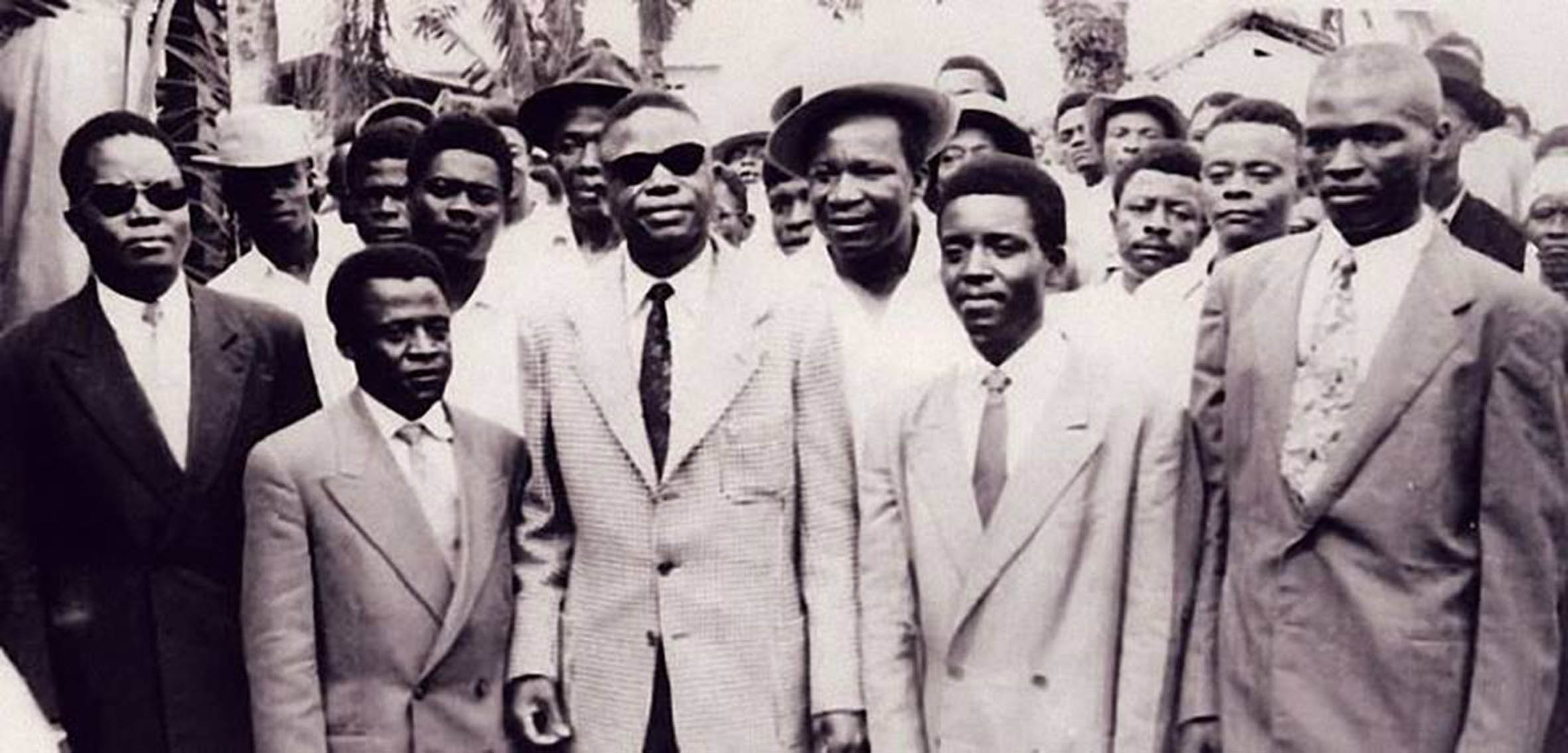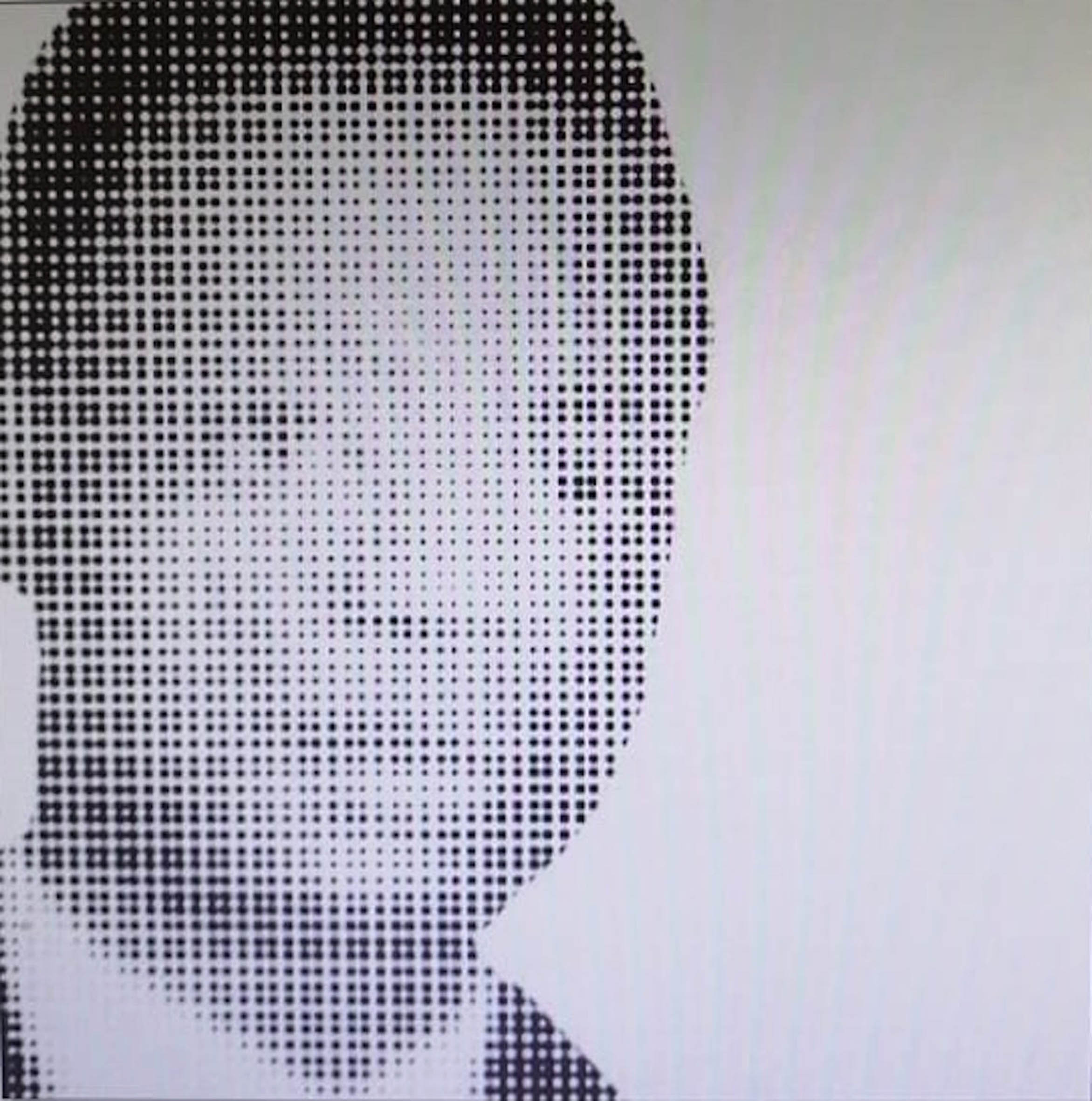Freedom fighter: Video stills are from Blick Bassys single 'Ngwa', which celebrates the legacy of Ruben Um Nyobé, a Cameroonian politician who fought colonialism and was slain by the French. Photo: No Format!
‘What helped to make us famous in Cameroon was that we were very young but we had decided to sing in our mother tongues,” says musician Blick Bassy from across the table in a guest house in Johannesburg’s suburb of Linden.
“Each singer was singing in their mother tongue, and then we were singing the same song. So sometimes you would have the same song singing in three [different languages], everyone just singing his language. I think it was the first time that people saw that in Cameroon, because most people were trying to sing in Douala. Other young bands were singing in French and English.”
Bassy, whose fourth album 1958 (his second with French label No Format!), is dedicated to the memory of Cameroonian nationalist leader Ruben Um Nyobé. He is narrating the story of his former group Macase, which at some point was fronted by three singers, meaning the songs could, at any point, be a mixture of Bassa, Ewondo and Eton.

Ruben Um Nyobé was a Cameroonian politician who fought colonialism and was slain by the French. Photo: Supplied
Bassy, a singer and influential former member of the group, helped to orchestrate its fusion of Cameroonian rhythms with soul and jazz elements. After a 10-year stint during which the group rose from obscurity to international recognition, he left it in 2005 to pursue a solo career in France.
Deeply invested in the fortunes of Cameroon (he still travels to his home country, checking in on his home village of Nkol Messeng, every year), Bassy says his move to Europe not only thrust him into an environment where he was forced to assess his abilities from a new perspective, it also enabled him to reflect on how he could connect with people who didn’t understand where he was coming from with regard to his melodies and lyrics.
“I said to myself, things are really easy. We are human beings, and human beings have a … you can have goose [bumps], you can be touched by seeing beautiful art, without any words, without any lyrics, you just have to give some vibration.”
At an early February showcase held by his record label at the Untitled Basement in Braamfontein, Johannesburg, a living document of Bassy’s sentiments played itself out in the form of the video for his single Ngwa, which celebrates the legacy of Um Nyobé, the martyred leader of the Union of the Peoples of Cameroon (UPC).
Shot in Lesotho with a South African crew under the direction of filmmaker Tebogo Malope, the video references multiple histories, to conjure scenes inspired by Ngugi wa Thiong’o’s Matigari and Solomon Mahlangu’s “tree of freedom” declaration.
“When I was in school, in our books, Ruben Um Nyobé was a terrorist, you know,” he says. “So finally I went to him to understand what is happening today. So you can understand the Cameroonian situation today because the team they was putting together was asking totally [for] freedom and others were agree[ing] to half freedom, and this is the team still managing our country today. So you can understand that we’re not really free.”
In his musical choices, Bassy continues to be driven by a yearning for self-knowledge, exhibiting a constant search for quietude and mindfulness, even as he had toured 80 countries in the past two years.
At the February show, in which he patiently discussed the context behind his music video and upcoming album, he began with a bare musical piece, in which he played a threadbare, pulsating riff that highlighted the unique emotional register of his voice. It was enough to translate his earnestness and the quest for a singular voice.
“I’m lucky to have a job in which I could expand [on] what I really have in my heart, besides my emotion but also my message as a human being. Sometimes you can touch someone with an emotion and, when they come to listen to what you are saying, they will also come to you for your ‘why’ and I think people are following us [artists] for our ‘why’, why are we doing this?”
The second single off Bassy’s new album is Woni, another sparse song driven by string instruments, horn accompaniments and delicate melodies, all, of course, showcasing the warmth and melancholy of Bassy’s voice.
“Woni is about the fear that we carry with us,” he says, relating a story of how his grandfather lowered his voice conspiratorially when narrating the story of how he, Bassy’s mother and other family members spent extended periods in forest hideaways during the anti-colonial struggles.
“He was scared that someone can beat us because we are talking about this period. I wrote this song talking about how even our new generation is living in fear, ’cause they don’t have enough courage and they are hiding in alcohol and finally accepting that this is a normal way to live.”
The video, directed by Justice Mukheli, and the album 1958 will be launched on March 8. The album is accompanied by a narrative history about the struggle for independence in Cameroon, contextualising the era in which Um Nyobé was politically active.
The capture of Ruben Um Nyobé

Resistance: Ruben Um Nyobè was shot by a firing squad in 1958 after refusing to give up the struggle. Photo: No Format!
In July 1958, a new face joined Ruben Um Nyobé’s dwindling band, one Théodore Mayi Ma Matip. He had been an activist in Douala before the riots of 1955, when he was arrested and jailed. On his release, he expressed a strong interest in joining the maquis underground movement, despite the objections of some in the circle who suspected Ma Matip of having been “turned” by the French while in jail.
For some reason, Um Nyobé also seemed keen for him to be part of his inner circle. Perhaps he thought that Ma Matip, who was the son of an important clan chief, would enhance his political prestige. Perhaps he valued Ma Matip’s reputed skills as a diviner.
During the spring and summer of 1958, the French were eliminating then Union of the Peoples of Cameroon (UPC) cells one by one. The commander of the Organisational National Committee, the UPC’s armed wing, Isaac Nyobé Pandjock, aka “Le Général”, was assassinated during an ambush. Many fighters laid down their arms.
Yet still the French couldn’t catch Um Nyobé. A former policeman involved in the hunt for Um Nyobé remembers how hard it was to track him down, as if the UPC leader had made a special pact with nature. As if the Bassa policemen, guides and informers who were working with the French army were somehow hunting their own shadows and plunging a knife into their own hearts. At every turn, fate seemed to conspire against them.
Um Nyobé’s friends called him Mpodol, the Prophet.
But fate was playing a dark game. In August, the French captured a senior member of the UPC, who gave them with a detailed report on the organisation of the maquis.
On the morning of September 10, a contingent of paratroopers and tirailleurs (an African soldier in the French colonial army) , led by Captain Guillou, apprehended Um Nyobé and his entourage in the forests of Hop Béa. They saw the UPC leader sitting in a small grotto and opened fire. Some of Um Nyobé’s followers, including his son Daniel Um Nyobé, who was trying to shield his father, were killed instantly. Others, including Um Nyobé’s closest aide Jean-Marc Ngambi and his partner Marie Ngo Njock, managed to escape. The army caught up with them later in the day and slit Njock’s throat in front of her son and her daughter.
Mayi Ma Matip, who had begun the day by consulting his oracle and declaring that it would pass without incident, had answered a convenient call of nature just before the soldiers arrived and was nowhere to be seen.
Guillou took Um Nyobé prisoner and organised his transfer to army headquarters in Yaoundé. After an interrogation during which he refused to give up the armed struggle in return for a reduced sentence or even a pardon, Um Nyobé was taken out into the yard and shot by a firing squad. The order had come straight from France.
His body was taken back to Eséka in Sanaga-Maritime, where he was officially declared dead. Pictures were taken, a tract was quickly printed and distributed nationwide, radio stations and newspapers were informed, and the people learned that their voice, their Mpodol, their Prophet, was gone. The body was disposed of in an unmarked tomb of concrete.
An edited essay extract by Andy Morgan on Um Nyobé’s politics and his connection to Blick Bassy